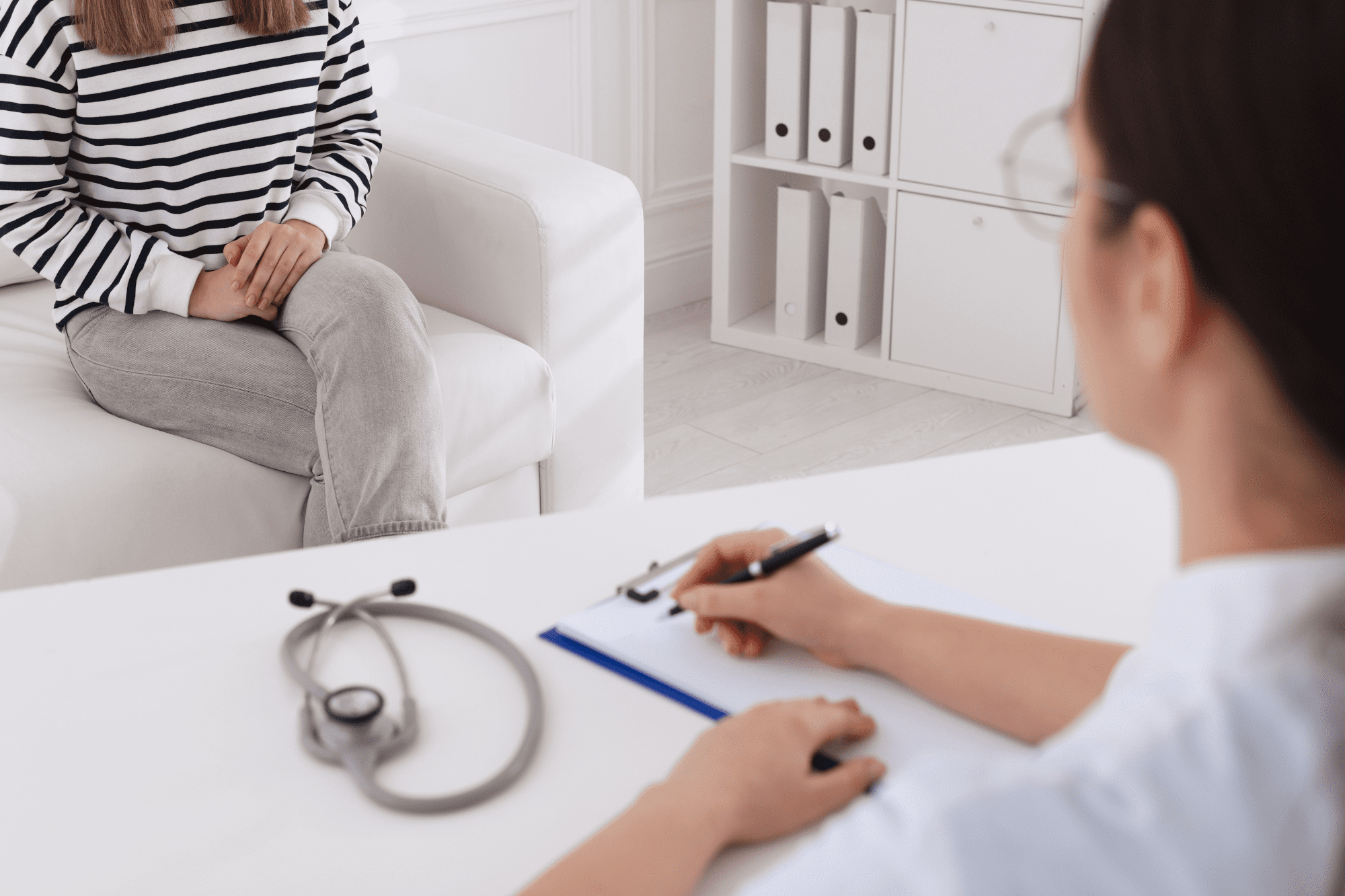For hundreds of years, sexually transmitted infections (STIs) have had a lot of shame and stigma. If you have or suspect you might have an infection, you may be wondering, “Should I be ashamed of my STI?”
This blog will explain why you shouldn’t feel dirty or embarrassed by your infection. You’ll learn common causes and ways to maintain your sexual health if you’ve been diagnosed with an STI. We’ll also explain why it’s crucial to get tested and treated ASAP.

What are sexually transmitted infections (STIs)?
STIs, also known as sexually transmitted diseases (STDs), are infections and diseases that are passed through sexual contact. These infections can be caused by bacteria, fungi, viruses, or parasites. These organisms live in bodily fluids such as semen, saliva, blood, urine, and areas with mucous lining, including the vagina.
When you have sex with someone who has an STI, they can pass the infection to you. All sexual contact that involves touching or exchanging bodily fluids can spread STDs, including:
- Vaginal sex
- Anal sex
- Oral sex
- Skin-to-skin contact, such as touching an infected person’s genitals or genital-to-genital contact
As you can see, penetrative sex isn’t the only way to get or pass a sexual infection. Using condoms may lower your risk of infection, but contraceptives don’t always protect against STDs.
The Centers for Disease Control and Prevention (CDC) recommends abstinence as the most effective way to avoid STIs. You can’t get an infection or get pregnant if you don’t have sex.
A long-term, monogamous relationship with a sexual partner who doesn’t have an STD will also reduce the risk of infection.
Does it matter if I have a sexually transmitted disease (STD)?
Yes! Like any infection, STIs threaten your health and quality of life.
For example, an STD can increase your risk of long-term abortion, miscarriage, and birth complications. These scenarios remove the natural protective covering over your cervix, which allows infections to travel into your uterus. Additionally, the tools used in a surgical abortion can carry the infection into your uterus during the procedure.
If this happens, you may experience infertility, pelvic inflammatory disease (PID), ectopic pregnancy, scarring, cervical cancer, and a life-threatening infection known as sepsis.
If you are pregnant, getting an STI test should be one of your first steps. To help prevent these serious health complications, we test for STIs. Thrive Orlando offers free testing and treatment to any patients who qualify. Make an appointment today to see if you are eligible for this no-cost pregnancy service.
Are sexually transmitted diseases (STDs) dirty or gross?
No, sexual infections are not dirty or gross. That said, there has been a shameful stigma around STDs because they affect the genitals. It isn’t good or normal to have an infection, but you should never be ashamed if you test positive.
In fact, one in every five Americans has at least one STI in their lifetime. Unfortunately, shame may be one reason this number is so high. People may accidentally spread their infection because they’re too embarrassed to see a healthcare provider.
Most STIs are asymptomatic as well. People may not even know they’re infecting others because they don’t know they’re sick.

Staying aware of common symptoms can help you protect yourself and others. You may test positive for an STI if you have signs such as:
- Unusual or strong-smelling vaginal discharge
- Burning or pain when you pee
- Painful sex
- Pain in the lower abdomen
- Unusual vaginal bleeding
- Bumps or sores on your genitals, anus, or around your mouth
If you’re sexually active and have any symptoms, have had unprotected sex, or learned that a sexual partner has an STD, get tested right away.
Should I feel bad about my STI?
No, you should not feel bad about your STD. Like any other illness, your STI status is just a health issue that needs diagnosis and treatment.
Once you have a diagnosis, it’s your responsibility to take care of your sexual health and protect others from your infection. Thankfully, modern medicine makes many STIs curable or treatable.
Additionally, you can protect your health by avoiding sexual activities and minimizing your risk of infection.
If you do choose to have sex, you should always be honest with your partner and disclose your positive STI diagnosis. Take precautions, such as getting tested and using condoms, as well.

How do I know if I have an STI?
If you are pregnant or think you might be, STD testing should be one of your first steps.
At our healthcare clinic, pregnant women have access to no-cost STD testing and treatment options. We test and treat common STIs like chlamydia and gonorrhea.
You’ll never face judgment about your STI or your unplanned pregnancy at Thrive Orlando. We offer respectful care and the chance to learn about all your pregnancy options, without pressure.
Schedule your appointment today for your free pregnancy test and STD testing/treatment.

